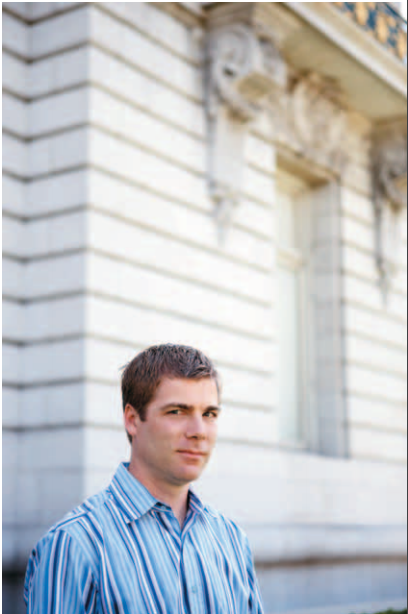Michael Wara
MICHAEL WARA Assistant Professor of Law Michael Wara ’06 approaches environmental problems with the empirical mind of a scientist and the analytical eye of a lawyer. “A lot of my work asks real-world, practical questions that can only be answered by gathering lots of data,” he says.

Part of a new generation of cross-disciplinary scholars, Wara is currently tackling important questions around climate change. In particular, his research focuses on the emerging global carbon trading market and mechanisms for reducing greenhouse gas emissions after the Kyoto Protocol expires in 2012. His broader interests also include the legal, financial, and technological constraints on the production of energy.
Wara’s most recent research sheds light on the Kyoto Protocol Clean Development Mechanism (CDM), a carbon-trading market that works by paying developing countries to adopt lowerpolluting technologies. Wara’s findings, published in Nature and the subject of a follow-up working paper with co-researcher Professor of Law David Victor, suggest that CDM is not an effective incentive for reducing emissions.
“Urgent reform is needed,” says Wara, who believes a variety of other regulatory and legal strategies will be required to effect real change. “If we don’t engage developing nations now, it’s like running on a treadmill and not going forward.”
Wara, who is also a fellow at the Program on Energy and Sustainable Development at Stanford’s Freeman Spogli Institute for International Studies, draws on an extensive background in oceanography, geochemistry, and climate science—the roots of which can be traced to his undergraduate years at Columbia University in the early 1990s.
“In college I was sucked into the science of climate change,” says Wara. “At the time there were so many unanswered questions, including whether it was real.”
A junior year spent working in a lab convinced him to pursue the topic as a scientist. So he headed to UC Santa Cruz, where he received his PhD in ocean sciences in 2003. During that time, his doctoral work on the El Niño/La Niña system and its response to changing climates was published in Science, a premier journal in the field. • “As I was getting my PhD, I realized that the more interesting question for me was ‘so what do we do,’ ” he says. “That drew me into law and policy.”
Wara decided to get his JD at Stanford Law, after which he worked on climate change and land use issues as an associate at the San Francisco office of Holland & Knight. In 2007, he returned to Stanford Law as a research fellow in environmental law and as a lecturer in law, teaching an International Environmental Law seminar that drew a cross section of law, engineering, and environmental studies students.
In addition to his scholarly work at Stanford, Wara is teaching Environmental Law and Policy this winter. • “Michael is a pioneer in the next generation of legal academics working on the environment—scholars who can think about and approach issues of environmental law and policy with a deep understanding of the underlying science and technology,” says Larry Kramer, Richard E. Lang Professor of Law and Dean. “There is no more important work to be done, and Michael is on the cutting edge.”
